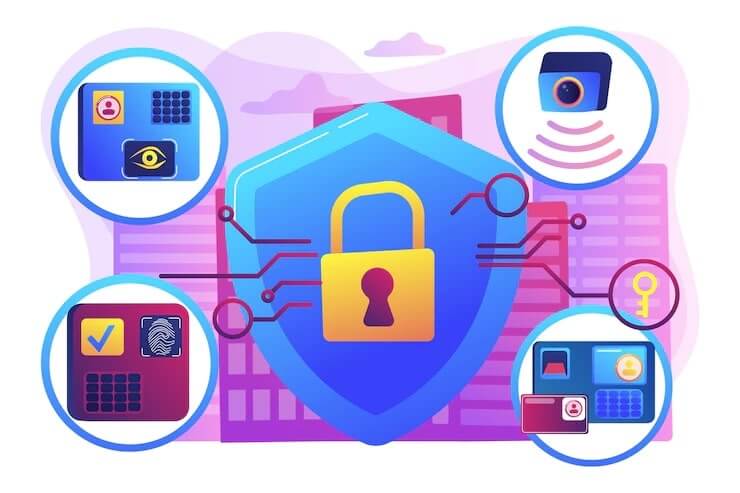11 Factors to Consider Before Purchasing a Home Security System
According to the FBI, 2 million homes get broken into every year. With those statistics, the most one can do is everything they can to protect their valuables. Installing a home security system is one sure way of ensuring your property is safe and that you can quickly avert a break-in or disaster from happening. This article looks into 11 factors that you should consider if you plan to set up a home security system.
Factors to Consider for a Home Security System
You must consider numerous factors when considering purchasing a home safety system. The following are just a few of them.
1. Understand a wired and wireless home security system
Understanding the difference between wired and wireless security systems will enable you to pick the most appropriate one for your home.

Wired security systems involve the utilization of cables, meaning there is a lot of wall drilling to create a route for the wires. The wired security systems are most suitable for the internet scarce areas or regions without internet.
The wireless home safety systems involve no wiring, except for the electrical cord on the control interface. It is cheap as you do not incur installation costs. These wireless connections require Wi-Fi connections and are suitable to operate.
2. Burglar alarms Vs. Home Security systems
The home security systems and the burglar alarms vary. Burglar alarms contain doorbell sensors and window sensors that convey signals or alerts that an intruder has accessed your property or home.
However, the home security system offers extra benefits as it includes several components of security systems. For instance, it can alert you of fire, flooding, and high quantities of carbon monoxide. Hence, comparing the two gives you an idea of what you want before contacting a security agency.
3. Consider monitoring
Monitoring of security systems is essential for further action if the systems raise the alarm. Monitoring can be done professionally, or you can do it for yourself. The central-system monitoring notifies a security company of a looming disaster or emergency with professional monitoring. The security company can then call to inform the police or concerned authorities.
You can also sync your security system with your smartphone. If you are not always too busy, you can act on the notifications sent to your phone in an emergency or rely on your neighbors' goodwill to report an incident.
4. Shop around
Window shop for home security systems and get at least three prices from various security companies to compare and pick the most favorable. Get the prices for systems' installation and monitoring as these costs are the primary determinant for the uptake of a home security system.
5. Guard your valuables
Asset guarding devices are available in the market, and you can install them in your home next or on valuable assets such as the jewelry box or safes. The safeguarding devices alert your smartphone whenever your valuables are tampered with while you are away from home.
6. Inquire about power outages
Inquire whether a security system can still operate when there is a power outage. Most home security systems can function without power and will still work with power outages.
Also, inquire about the voltage consumption by the security systems. Most traditional electric home security systems are low voltage, so there is minimal consumption.
7. Solar security alternatives
Solar-powered security systems rely on sunlight for power. They are a form of green option and have numerous security components. You can decide to use it for outdoor security or for the entire home.
8. Size is a factor of consideration.
Home security systems vary in size, and the one you choose depends on the size of the home you want to be secured. A small DIY home security system can fit a tiny house, apartment, or condo. Opt for a security system that can handle lots of information for larger homes.
9. Live view or recorded video
If intending to set up a security system, you must choose whether you want to watch the surveillance video live or watch the recording of surveillance footage. Understanding the difference between the two will enable you to pick the security cameras that suit your needs. For instance, IP cameras facilitate live view, whereas camera systems with DVR facilitate recordings for later use.
10. Camera considerations
Consider image type, quality, and range view when purchasing a security camera system. Determine the number of cameras the area you want secured will need and the quality of pictures you will require from the security system.
11. Avoid cheap cameras
A famous saying goes like this, 'cheap is expensive.' Avoid cheap cameras like the webcams if you consider and are serious about your home's security. Webcams are made for chatting. Obtain dome cameras plus bullet styles for effective home camera security systems.
Conclusion
Choosing a suitable home security system for your home should not be so hard. Before purchasing one, consider the above-discussed factors to have a clear head on what you desire to achieve through the security system.